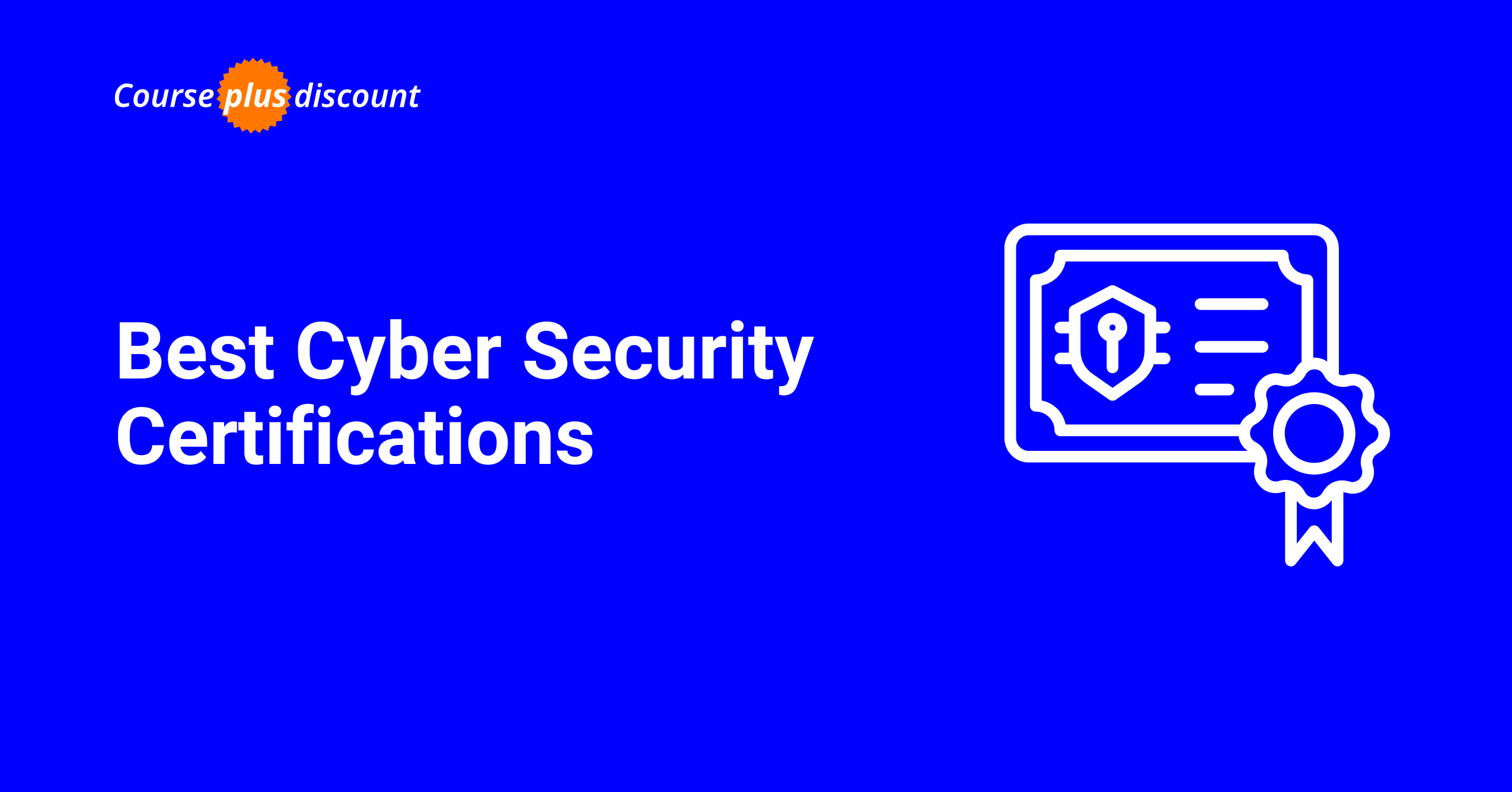Cyber security certifications (2025) can help you advance in your career in information security.
Whether you’re exploring cyber security certifications for beginners or pursuing the highest paying cyber security certifications, the right credentials can dramatically impact your career trajectory.
Following a strategic cybersecurity certification roadmap can lead to salaries exceeding $100,000, with some specialized roles commanding even higher compensation.
So, without wasting any time, let us get into it.
Top 10+ Cybersecurity Certifications: Quick Table
Here are the top 10 Cybersecurity Certifications you must consider. I have picked beginner, intermediate, and advanced level certificates, so pick one according to your level:
| Sr. No. | Certification | Provider | Level | Validity | Expected Salary Post Certification |
|---|---|---|---|---|---|
| 1 | ISC2 Certified in Cybersecurity (CC) | ISC2 | Beginner | 2-3 months | $107,500/ year |
| 2 | CompTIA Security+ | CompTIA | Beginner | 2-3 months | $71,689 /year |
| 3 | Google Cybersecurity Certificate | Beginner | 3-6 months | $143,268 /year | |
| 4 | IBM Cybersecurity Analyst | IBM | Beginner | 4-6 months | $99,400 /year |
| 5 | Microsoft Security Operations Analyst | Microsoft | Beginner | 2-3 months | $91,821 /year |
| 6 | GSEC | GIAC | Intermediate | 4 years | $50,041 /year |
| 7 | CCSP | ISC2 | Advanced | 3 years | $123,151/ year |
| 8 | CISA | ISACA | Advanced | 3 years | $109,713 /year |
| 9 | Cisco CCNA Security | Cisco | Intermediate | 3 years | $124,948 /year |
| 10 | CASP+ | CompTIA | Advanced | 3 years | $87,500/ year |
Now let us discuss all the 11 certificates in depth:
1. ISC2 Certified in Cybersecurity (CC)
| Provider | ISC2 |
| Cost | $249 |
| Prerequisites | ❌ |
| Average Salary* | $95,000–$120,000 |
| Exam Details | 2 hours, 100 questions, Passing score: 700/1000 |
| What You’ll Learn | Security Principles, Business Continuity & Disaster Recovery, Access Controls, Network Security, Security Operations |
The ISC2 CC certification is designed for cybersecurity newcomers. It provides a foundation for entry-level security roles such as Junior Security Analyst and Information Security Associate and is also a stepping stone toward advanced ISC2 certifications.
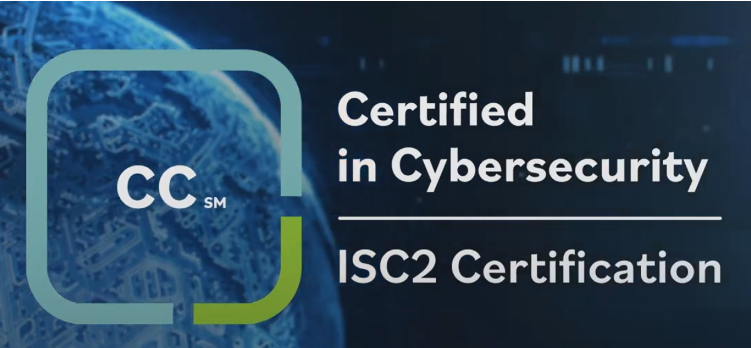
2. CompTIA Security+
| Provider | CompTIA |
| Cost | $392 |
| Prerequisites | ❌ |
| Average Salary* | $21,500- $127,000 |
| Exam Details | 90 minutes for 90 questions, Performance-based & multiple choice, Passing score: 750/900 |
| What You’ll Learn | Attacks, Threats & Vulnerabilities, Architecture & Design, Implementation, Operations & Incident Response, Governance, Risk & Compliance |
Security+ is widely recognized as the foundational certification for cybersecurity careers. It is ideal for roles like Security Administrator and System Security Analyst, and Many DoD positions require it. To practice and get free resources for CompTIA A+ certification, you can take the course on Coursera.
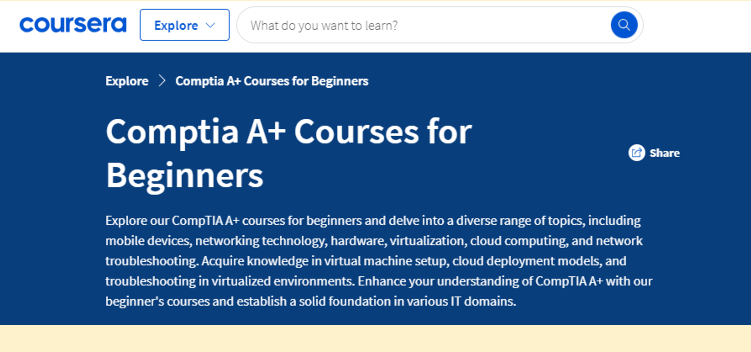
3. Google Cybersecurity Certificate
| Provider | Google via Coursera |
| Cost | $49/month (Coursera subscription) |
| Prerequisites | ❌ |
| Average Salary* | $61,418- $200,418 |
| Exam Details | Self-paced, finish 8 courses & Real-world projects |
| What You’ll Learn | Python Programming, Linux & SQL, Security Operations, Asset Security, Incident Response |
The Google certificate is available via Coursera. This certificate provides a direct pathway to entry-level cybersecurity positions at Google and its partner companies. It is perfect for career changers seeking roles like Cybersecurity Analyst or Security Operations Center (SOC) Analyst.
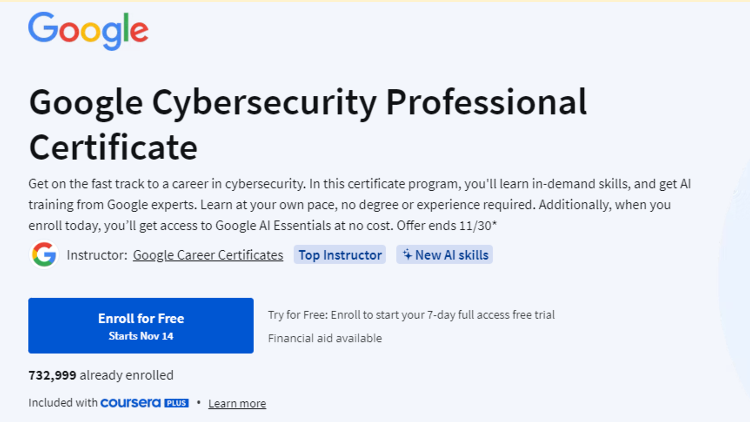
4. IBM Cybersecurity Analyst
| Provider | Self-paced, finished 14 courses & Real-world projects |
| Cost | $49/month (Coursera subscription) |
| Prerequisites | Basic IT knowledge is helpful but not required |
| Average Salary* | $43,000- $150,000 |
| Exam Details | Self-paced, finish 14 courses & Real-world projects |
| What You’ll Learn | Network Security, Incident Response, Threat Intelligence, Forensics Tools, SIEM Tools |
IBM’s certification provides practical experience with industry tools, preparing candidates for roles like Security Analyst and Incident Responder. IBM’s brand recognition adds significant value to resumes. Using Coursera for the prep will help you receive professional-level training from IBM.
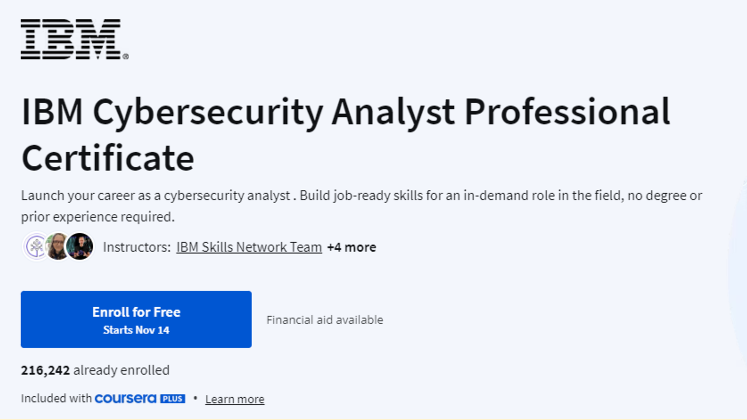
5. Microsoft Security Operations Analyst
| Provider | Microsoft |
| Cost | $165 |
| Prerequisites | Basic understanding of Microsoft 365 services |
| Average Salary* | $36,500- $126,500 |
| Exam Details | 3 hours exam with 40-60 questions, Passing score: 700/1000 |
| What You’ll Learn | Microsoft Security Tools, Threat Management, Security Monitoring, Incident Response, Regulatory Compliance |
Microsoft Security Operations Analyst certification is ideal for those seeking roles in organizations using Microsoft security solutions, leading to positions like Security Operations Analyst and Microsoft Security Engineer. You work closely with business and security leaders to establish the organization’s security standards.
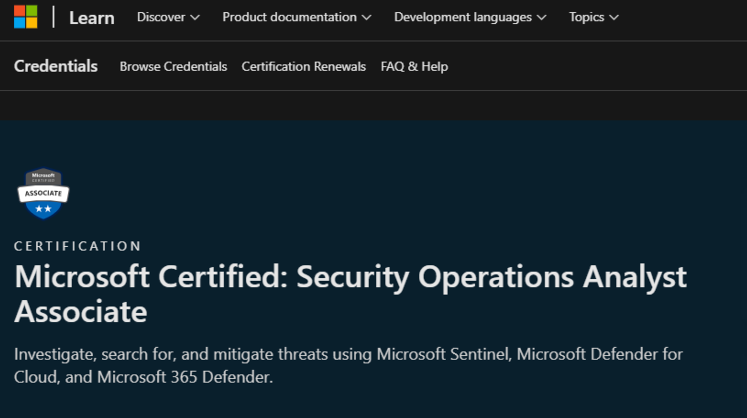
6. GIAC Security Essentials (GSEC)
| Provider | GIAC |
| Cost | $2,499 |
| Prerequisites | Security experience is recommended |
| Average Salary* | $32,500- $62,500 |
| Exam Details | Open book timed 4 hours, 106 questions, Passing score: 73% |
| What You’ll Learn | Active Defense, Network Security, Cryptography, Cloud Security, Risk Management |
The GSEC certification covers key security topics like cryptography, network architecture, cloud operations, and endpoint security. It targets InfoSec professionals, IT engineers, and auditors, validating theoretical knowledge and practical skills through CyberLive’s real-world testing. Check the GIAC Security certificate here.
7. Certified Cloud Security Professional (CCSP)
| Provider | ISC2 |
| Cost | $599 |
| Prerequisites | 5 years of IT experience, including 3 in security |
| Average Salary* | $61,000- $193,000 |
| Exam Details | 3 hours exam with 125 questions, Passing score: 700/1000 |
| What You’ll Learn | Cloud Architecture, Cloud Data Security, Cloud Platform Security, Cloud Application Security, Legal & Compliance |
The CCSP certification is perfect for IT and cybersecurity leaders. It validates advanced technical skills in designing, managing, and securing cloud environments. Coursera offers a course to prepare for this exam, covering architecture, data, applications, operations, and compliance.

8. Certified Information Systems Auditor (CISA)
| Provider | ISACA |
| Cost | $760 (non-member), $575 (member) |
| Prerequisites | 5 years of IT experience, including 3 in security |
| Average Salary* | $62,000- $150,000 |
| Exam Details | 4 hours exam with 180 questions |
| What You’ll Learn | Information Systems Auditing, IT Governance, Systems Acquisition, Data Protection, Business Resilience |
The CISA certification is a globally respected credential for IT auditing, monitoring, and risk-based assessments, covering emerging technologies like AI and blockchain. It demonstrates expertise, improves job performance, and is among the top-paying IT among the ISACA certifications.
9. Cisco CCNA Security
| Provider | CISCO |
| Cost | $300 |
| Prerequisites | Basic networking knowledge, CCNA recommended |
| Average Salary* | $21,000- $167,000 |
| Exam Details | 4 hours exam with 180 questions |
| What You’ll Learn | Information Systems Auditing, IT Governance, Systems Acquisition, Data Protection, Business Resilience |
Cisco security certifications validate expertise in protecting network infrastructures, addressing real-world security issues effectively, and preparing for roles like security analyst. Certifications such as CCNP and CCIE Security demonstrate proficiency in securing complex environments.
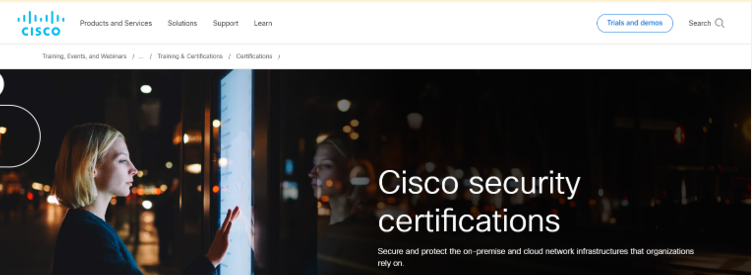
10. CompTIA Advanced Security Practitioner (CASP+)
| Provider | CompTIA |
| Cost | $466 |
| Prerequisites | 10 years IT admin experience (5 in security) recommended |
| Average Salary* | $44,000- $131,000 |
| Exam Details | 165 minutes, 90 questions, Performance-based, Passing score varies |
| What You’ll Learn | Information Systems Auditing, IT Governance, Systems Acquisition, Data Protection, Business Resilience |
The CompTIA CASP+ certification empowers cybersecurity professionals to design, implement, and manage enterprise solutions. Unlike other certifications, CASP+ focuses on hands-on, advanced-level skills in security architecture and engineering, ensuring readiness for complex cyber threats and compliance needs.
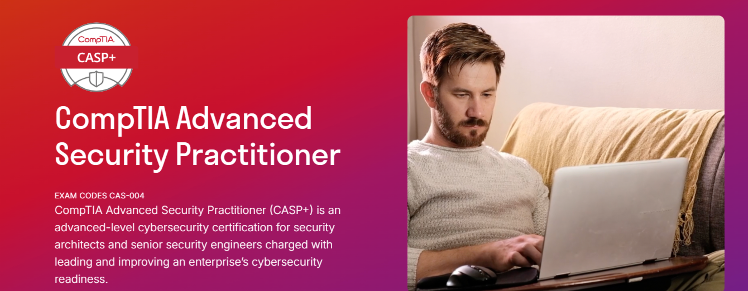
11. AWS Security Specialty
| Provider | Amazon Web Services |
| Cost | $300 |
| Prerequisites | 2+ years AWS security experience recommended |
| Average Salary* | $31,500- $132,500 |
| Exam Details | 170 minutes, 65 questions, Scenario-based questions |
| What You’ll Learn | Infrastructure Security, Data Protection, Incident Response, Identity Management, Monitoring & Logging |
The AWS Certified Security Specialty certification focuses on securing AWS workloads and cloud environments. It validates expertise in designing and implementing security solutions, enhancing credibility as a trusted advisor. Preparation includes hands-on experience with AWS security tools and best practices.
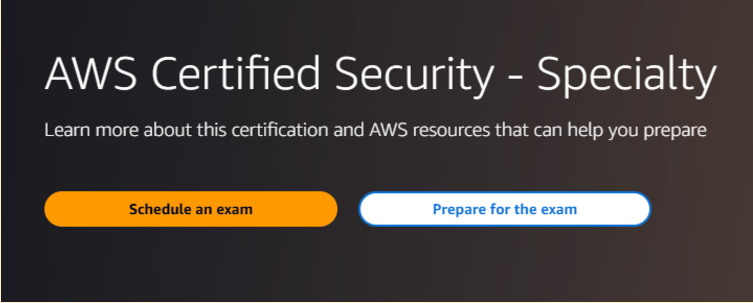
Why Get the Best Cyber Security Certifications?
Cybersecurity professionals faceless threat of unemployment. Organizations increasingly prioritize certified professionals to protect against evolving cyber threats and maintain compliance standards.
Getting a Career Cyber Security Certification can get you Advancement Opportunities such as:
- Fast-track promotions with recognized credentials
- Access to senior-level positions and management roles
- Higher priority in competitive job markets
- Global recognition and portability of certifications
- Specialized role opportunities
Cyber Security Certifications can also get you a big salary. If you want to earn a big paycheck, here are the Highest Paying Cyber Security Certifications:
- CISSP ($150,000+)
- AWS Security Specialty ($160,000+)
- CCSP ($150,000+)
Career Paths In Cybersecurity
Let us quickly take a look at the breakdown of career paths in cybersecurity:
1. Entry-level Positions
- Security Analyst
- Junior Penetration Tester
- SOC Analyst Level 1
- Information Security Associate
2. Mid-career Opportunities
- Security Engineer
- Threat Intelligence Analyst
- Incident Response Manager
- Security Consultant
3. Advanced Roles
- Chief Information Security Officer (CISO)
- Security Architect
- Director of Security
- Principal Security Engineer
4. Specialization Options
- Cloud Security
- Forensics
- Governance & Compliance
- Penetration Testing
- Application Security
Choosing The Right Certification
Selecting the appropriate cybersecurity certification requires careful consideration of your career goals, current skill level, and industry demands.
The cybersecurity certification roadmap typically starts with foundational certifications like ISC2 CC or CompTIA Security+ before progressing to specialized credentials.
Consider your investment in terms of time, money, and career return while ensuring the certification aligns with industry requirements in your region.
Also Read:
Conclusion: Cyber Security Certificates Help You Earn $150,000+ Annually
Cybersecurity certifications are invaluable investments for career growth, with top professionals earning $150,000+ annually.
However, if you are confused about where to start my top recommendations are:
- CompTIA Security+ for its industry-wide recognition and DoD acceptance
- Google Cybersecurity Certificate for its direct pathway to employment and comprehensive curriculum
- CCSP for its high salary potential and cloud security expertise.
These certifications validate your skills, demonstrate commitment to employers, and keep you current with evolving threats.
The growing demand for cybersecurity makes now the perfect time to invest in your professional development. Start with an entry-level certification like Security+ or ISC2 CC, create a study plan, and take the first step toward your cybersecurity career advancement.
FAQs
CompTIA Security+ is for beginners, and CISSP is for advanced professionals. The choice depends on experience level and career goals.
CISSP, AWS Security Specialty, and CCSP consistently rank as the highest-paying cybersecurity certifications.
CISSP remains the most sought-after certification, followed by Security+ for entry-level positions.
Certificates provide faster entry into the field, while degrees offer broader knowledge. Many professionals pursue both.
Entry-level certifications like Security+ or ISC2 CC can qualify you for junior security analyst positions.
Moderate difficulty requiring 2-3 months of dedicated study. Previous IT experience helps but isn’t mandatory.
